
Dentist
Meriden Connecticut
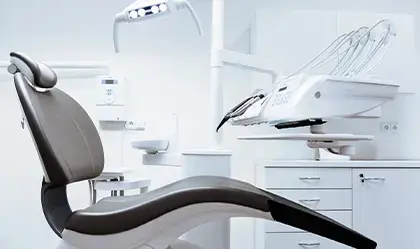
Our Dentist: The Best Dental Care In Town
You need a dentist for your routine check-ups and maintenance, but you don't want to see some random general practitioner who doesn't know you and your needs. You want to see someone who cares about your smile as much as you do. A dentist who will take the time to answer your questions and make sure that you really understand what's going on.
What Services We Offer:
We offer a wide range of dental services at our office, including preventative care, restorative treatments, and cosmetic procedures. We are committed to providing our patients with the highest quality of care possible.
Preventative Care: We offer a variety of preventative dental services, such as teeth cleanings, fluoride treatments, and sealants. These services help to keep your teeth healthy and free of cavities and other problems.
Restorative Treatments: If you have any damage to your teeth or gums, we offer a variety of restorative treatments to repair the damage and restore your smile. These treatments include fillings, crowns, bridges, implants, and dentures.
Cosmetic Procedures: We also offer a number of cosmetic dental procedures to help improve the appearance of your smile. These procedures include teeth whitening, veneers, bonding, and reshaping.
We believe in transparency when it comes to our prices. We will always give you a detailed estimate of what your treatment will cost before we begin so that there are no surprises. We accept most insurance plans and offer financing options for those who need it.
We know that choosing a dentist is a big decision, but we hope that after reading this, you’ll see why our dentists are the best choice for you. Contact us today to schedule an appointment or come in for a tour.
Our Dental Process:
We know that finding a new dentist can be daunting. There are so many options out there and it’s hard to know who to trust with your smile. That’s why we want to tell you a little bit about our process. We believe that we offer the best dental care in town and we hope that after reading this, you’ll see why.
Our first priority is always your comfort. We know that going to the dentist can be stressful, so we do everything we can to make sure you feel relaxed and comfortable during your appointment. We take the time to get to know you and your dental history so that we can tailor our approach to meet your needs.
We use state-of-the-art equipment and techniques so that you can be confident you’re getting the best possible care. We also offer a wide range of services so that we can meet all of your dental needs in one place.
Oral Surgeon
Meriden Connecticut
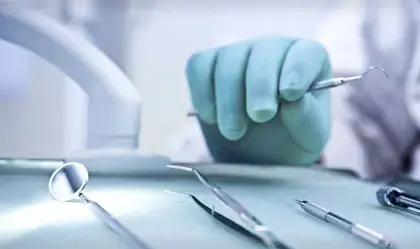
Oral Surgery Options: Tooth Extractions, Wisdom Teeth, Dental Implants
When you come to our practice, we will take the time to make sure you understand all of your choices and their risks and benefits so that you feel confident in your decisions.
Bone Grafts:
A bone graft is a surgical procedure that replaces missing bone in order to repair bone fractures that are not able to heal properly on their own. The new bone may be taken from another part of the patient's body, or it may be artificial. Bone grafts are commonly used to repair broken bones in the arm or leg.
There are several types of bone grafts, and the type of graft used will depend on the location and extent of the injury. Autografts are the most common type of bone graft, and involve taking bone from one area of the body and transplanting it to the injured site. Allografts use donor tissue from a cadaver, while synthetic substitutes are also available.
Bone graft surgery is usually performed under general anesthesia, and takes several hours to complete. Recovery time varies depending on the extent of the surgery, but can take several weeks. There is a risk of infection and other complications associated with any surgical procedure, but these risks can be minimized with proper care before and after surgery.
Frenectomies (Frenum Reconstructions):
A frenectomy is a surgical procedure to remove or release a frenum, which is a connective tissue under the tongue. A frenectomy may be recommended if a person has an excessively large or thick frenum that causes problems with eating, speaking, or smiling. In some cases, a frenectomy may also be done as part of treatment for sleep apnea.
There are two types of frenectomies: partial and complete. In a partial frenectomy, only part of the frenum is removed. This is typically done when the problem is localized to one area, such as the middle of the tongue. A complete frenectomy involves removal of the entire frenum. This type of surgery is more extensive and is usually reserved for cases where the Frenulum extends all across the tongue or floor of mouth causing severe functional problems.
The surgery is usually performed in an outpatient setting using local anesthesia. The surgeon will make an incision in the tissue and then cut through the Frenulum. In some cases, stitches may be required to close the wound. The recovery time from a Frenectomy is typically short, and most people can return to their normal activities within a few days.
Oral Lesions/Biopsies:
There are a variety of oral lesions that can occur in the mouth, many of which are benign and do not require treatment. However, some oral lesions can be indicative of more serious conditions, such as cancer, and may require a biopsy to determine whether or not treatment is necessary.
Oral lesions can take many different forms, including ulcers, white or red patches, lumps, and swelling. Many of these lesions are harmless and will resolve on their own without any treatment. However, some lesions may be indicative of more serious conditions such as cancer. If you notice any changes in your mouth that last longer than two weeks or are accompanied by other symptoms such as pain, bleeding, or difficulty swallowing, it is important to see your dentist or oral surgeon for an evaluation.
A biopsy is a procedure in which a small sample of tissue is removed from the mouth for examination under a microscope. This is the only way to definitively diagnose many oral conditions, including cancer. If your dentist or oral surgeon suspects that you have an oral lesion that may be cancerous, they will likely recommend a biopsy. The type of biopsy performed will depend on the location and size of the lesion.
There are several different types of tooth extractions that can be performed by our oral surgeons: simple extractions, surgical extractions, and impacted tooth extractions. Simple extractions are typically performed on teeth that are visible in the mouth and easily accessible.
We want you to be happy with your decision to become our patient. We know that it's a big decision, but after reading this, hopefully you'll see why we're the best choice for you. Contact us today to schedule an appointment or come in for a tour.
Tooth Extractions
Wisdom Tooth Extractions
Dental Implants
Bone Grafts
Wisdom Teeth Removal
Meriden Connecticut
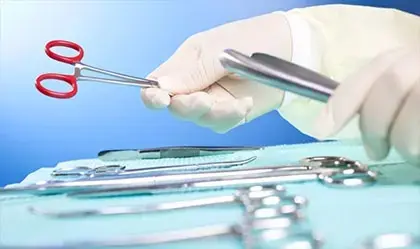
What happens during wisdom teeth removal?
When you get your wisdom teeth removed, you will be given a local anesthetic to numb the area around your teeth. You may also be given a sedative to help you relax. The dentist or oral surgeon will make an incision in your gum tissue to expose the tooth and bone. They will then remove the tooth and any bone that is blocking it. Finally, they will close the incision with stitches.
What are Wisdom Teeth & the normal process of getting them removed?
Wisdom teeth are the third and final set of molars that most people get in their late teens or early twenties. They are called wisdom teeth because they usually come in much later than your other teeth – when you're a bit older and (hopefully) wiser!
While some people never have any problems with their wisdom teeth and can keep them healthy for life, others may find that their wisdom teeth start to crowd or damage other teeth, cause pain or infections, or come in at an awkward angle. In these cases, it's often best to have them removed.
The good news is that getting your wisdom teeth removed is a pretty common procedure these days, so our dentist or oral surgeon will be able to walk you through everything you need to know beforehand. Here's a quick overview of what you can expect:
1. Our dentist will take X-rays of your mouth to get a clear picture of your wisdom teeth and how they are growing in.
2. If it is decided that you do need to have your wisdom teeth removed, you will be given an appointment for the procedure.
3. On the day of the procedure, you will be given local anesthesia to numb the area around your wisdom teeth. You may also be given sedation if you are particularly anxious about the procedure.
4. Once you are numb/sedated, our dentist or oral surgeon will make small incisions in your gums to access your wisdom teeth
After Wisdom Teeth Removal:
After you have your wisdom teeth removed, it is normal to experience some bleeding and swelling. You may also feel some pain and discomfort. Most people recover from wisdom tooth removal within a few days. However, it is important to take care of your mouth and follow your dentist's instructions to ensure a speedy recovery.
Wisdom Teeth Removal Alternatives:
There are a few alternatives to wisdom teeth removal that our dentist may suggest. One option is to have the wisdom teeth extracted but leave the roots in place. This is called an odontectomy. Another option is to have the wisdom teeth removed and the roots pulled out as well. This procedure is called an exodontia. The last option, which is also the most invasive, is to have the wisdom teeth removed and the roots replaced with artificial ones. This procedure is called an endodontia.
Choosing a dentist is a big decision, but after reading this we hope that you'll see why our dentists are the best choice for you. Contact us today to schedule an appointment or stop by for a tour.
We Accept Most PPO Insurances
We Accept Most State Insurances
Dental Implants
Meriden Connecticut

Dental Implants: What You Need To Know
If you're self-conscious about missing teeth or wearing dentures, there's an alternative that may be right for you: dental implants. Dental implants are one option for replacing missing or badly diseased teeth.
What is a dental implant?
A dental implant is a small titanium post that is placed into the jawbone to serve as a replacement for a missing tooth. The implant is then topped with a ceramic restoration that looks and functions just like a natural tooth. Dental implants are a popular choice for patients who are missing one or more teeth, as they provide a strong and stable foundation for the new teeth.
Dental Implants:
Dental implants are a popular option for oral surgery, as they can provide a long-term solution for missing teeth. The implant itself is a small metal screw that is placed into the jawbone, and a replacement tooth (called a crown) is then attached to the screw. Dental implants can be used to replace one or more missing teeth, and they can also be used to support dentures.
The main advantage of dental implants is that they look and function just like natural teeth. They are also very strong and durable, making them a good choice for people who have active lifestyles. Implants are also very easy to care for – simply brush and floss them like you would your natural teeth.
If you are considering dental implants, it is important to consult with an experienced oral surgeon to ensure that the procedure is right for you. The surgeon will assess your individual case and determine whether or not you are a good candidate for implants. In some cases, alternative treatments may be recommended.
Types of dental implants:
There are four main types of dental implants: endosteal, subperiosteal, zygomatic, and mini.
Endosteal implants – are the most common type of dental implant. They are placed directly into the jawbone and act as a replacement for the natural root of a tooth.
Subperiosteal implants – are placed under the gum but on or above the jawbone. They are used for people who cannot wear dentures or do not have enough bone height for endosteal implants.
Zygomatic implants – are placed in the cheekbone and are used for people who have lost all their teeth in the upper jaw.
Mini implants – are smaller than traditional dental implants and are used to support dentures.
How long do dental implants last?
Dental implants can last a lifetime with proper care. However, on average, most people will need to replace their implants every 10-15 years. Replacing your implant is a simple process and can be done in the same office where you got your initial dental implant.
We're confident you'll love the many benefits of being our patient. After reading about us, hopefully you'll agree and want to set up an appointment.
When you need a general dentist, orthodontist, or oral surgeon to diagnoses a problem requiring specialized surgical expertise, they call our dentists, DMD, for all of your dental and oral surgery needs. Our doctors use there advanced training, experience, and expertise to remedy oral related problems and deliver positive, predictable results. Patients benefit from the experience, exemplary service, and world-class care at our offices, DMD. Call today to schedule an appointment.
Tooth Extraction
Meriden Connecticut
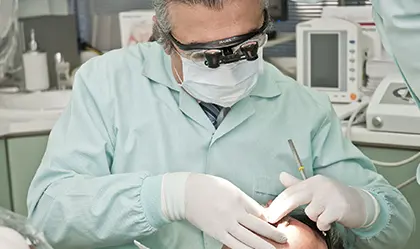
Why Do Dentists Recommend Tooth Extractions?
There are many reasons why a dentist may recommend tooth extraction. Some common reasons include:
-Tooth decay: If a tooth is severely decayed, it may need to be removed.
-Infection: If a tooth is infected, it may need to be removed to prevent the infection from spreading.
-Crowding: If there is not enough space in the mouth for all of the teeth, some may need to be removed.
-Orthodontic treatment: Sometimes teeth need to be removed in order to make room for orthodontic treatment (braces).
Tooth Extractions:
There are a few reasons your dentist may recommend a tooth extraction. If your tooth is severely decayed or damaged, it may need to be removed. Additionally, if you have overcrowding in your mouth, your dentist may recommended removing one or more teeth to make room for the rest of your teeth. Wisdom teeth are often removed because they can cause pain and damage to other teeth.
If you need a tooth extraction, your dentist will numb the area around the tooth and then remove it using special dental tools. The whole process usually takes less than 30 minutes. You may experience some soreness and swelling after the procedure, but this can be alleviated with over-the-counter pain medications.
When Should I See a Dentist for a Tooth Extraction?
When a tooth is severely decayed or damaged, a dentist may recommend extracting (removing) the tooth. In some cases, teeth may need to be extracted due to crowding or preparing for orthodontic treatment.
Extractions are typically performed by an oral surgeon or a general dentist. The procedure is usually quick and relatively painless. Recovery from an extraction usually takes a few days.
If you think you may need an extraction, it's important to see a dentist as soon as possible. Delay in treatment can lead to further damage to the tooth and surrounding tissues.
How Long Does the Procedure Usually Take, and What Happens Afterwards?
The procedure for a tooth extraction typically takes around 30 minutes. However, the length of time may vary depending on the difficulty of the extraction and the number of teeth being extracted. After the procedure, you will be given gauze to bite down on to help stop the bleeding. It is important to keep the gauze in place for at least 30 minutes and then to avoid drinking hot liquids or brushing your teeth for at least 24 hours. You may experience some discomfort after the procedure, and your dentist may prescribe pain medication to help alleviate this.
Do you want to be our patient? We're the best choice! We hope this information will convince you of our quality, service, and dedication. Contact us today to schedule an appointment or come in for a tour.
If you're looking for an experienced dentist, orthodontist, or oral surgeon, we can help. Our doctors have the advanced training and expertise you need to diagnose any oral-related problem and deliver predictable results. Our patients enjoy care with experience and service at our state-of-the-art facility, DMD. So call now to explore our services in more detail.
Corrective Jaw Surgery
Meriden Connecticut
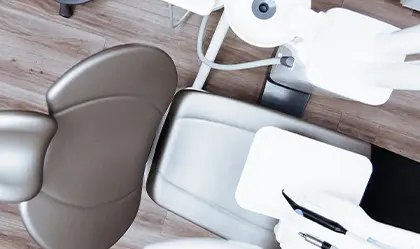
Restoring Your Smile With Corrective Jaw Surgery:
Restoring the health of your smile can restore your confidence, and we are here to help. We offer corrective jaw surgery for patients who suffer from TMJ disorder or other mouth related problems. If you're interested in learning more about whether this process is right for you, contact our team today!
What to expect from corrective jaw surgery:
If your teeth are not in alignment, you may be a candidate for corrective jaw surgery. This type of surgery is also sometimes called orthognathic surgery. It is performed by an oral and maxillofacial surgeon, and it can correct a wide range of problems, including:
• Improper bite
• Crooked teeth
• Crowded teeth
• Excessively protruding teeth
The goal of corrective jaw surgery is to improve the function and appearance of your smile. The procedure involves moving the upper jaw, lower jaw, or both in order to achieve the desired results. In some cases, bone may also be removed or added in order to further improve the alignment of the jaws.
Corrective jaw surgery is a complex procedure, and it typically takes several months for full recovery. During this time, you may experience some discomfort and swelling. However, most people report feeling much better once they have fully healed from the surgery. If you are considering corrective jaw surgery, be sure to consult with our experienced oral and maxillofacial surgeons to discuss all of your options.
The Procedure:
If your teeth are not in alignment, you may be a candidate for corrective jaw surgery. This type of surgery is also called orthognathic surgery. It is performed by an oral and maxillofacial surgeon, and it can correct a wide range of facial irregularities, including the alignment of your jaws and teeth.
The first step in the process is to schedule a consultation with your surgeon. During the consultation, your surgeon will examine your face and jaws, and take X-rays and photographs. They will also ask you about your medical history and any previous surgeries or procedures you have had.
Once your surgeon has all of the information they need, they will develop a treatment plan that is tailored to your unique needs. The treatment plan will outline the steps that will be taken during surgery, as well as what you can expect afterwards.
Before undergoing corrective jaw surgery, you will need to meet with a few different specialists. These may include an orthodontist, who will create a custom braces system to be used after surgery; a periodontist, who will assess the health of your gums; and/or an oral surgeon, who will perform the actual procedure.
The day of surgery, you will be given general anesthesia to keep you comfortable during the procedure. Once you are asleep, your surgeon will make incisions in your mouth and reposition your jaws into their new position.
After the bones have been repositioned, the surgeon will close the incisions with stitches. You will typically need to stay in the hospital for 1-2 days after surgery.
You can expect some swelling and bruising after surgery, but this should start to subside after a few days. pain medication can help manage any discomfort you may experience.
Most people need to take 4-6 weeks off from work or school to recover from corrective jaw surgery. You will likely need to eat soft foods for a few weeks as your mouth heals.
It is important to follow all of your oral surgeon's instructions during your recovery to ensure proper healing. If you have any questions or concerns, be sure to contact our oral surgeon.
If you’re considering corrective jaw surgery, it’s important to consult with our experienced oral surgeon to discuss whether the procedure is right for you.
Learn about the different treatments available:
If you're looking for a way to improve your smile, you may be wondering about the different treatments available. At our practice, we offer a variety of options to help you achieve the smile of your dreams.
If you have stained or discolored teeth, we offer professional teeth whitening. This treatment can give you noticeable results in just one visit. We also offer veneers, which are thin shells that are placed over the front surface of your teeth. Veneers can be used to correct a number of cosmetic concerns, including gaps, chips, and misshapen teeth.
If you have missing teeth, we offer dental implants as a way to replace them. Dental implants are titanium posts that are surgically placed into your jawbone. Once they have healed, artificial teeth are then attached to the implants. Implants are a great way to restore both the function and appearance of your smile.
We also offer a full range of general dentistry services, such as exams and cleanings, fillings, crowns and bridges, and dentures. No matter what your dental needs may be, we can help you achieve a healthy and beautiful smile that you'll be proud to show off!
Types of Dental Treatments:
There are many different types of dental treatments available, and it is important to know which one is right for you. Here is a list of some of the most common dental treatments:
-Dental implants: Dental implants are artificial teeth that are surgically implanted into the jawbone. They are permanent and can be used to replace one or more missing teeth.
-Crowns: A crown is a custom-made artificial tooth that is placed over an existing tooth. Crowns can be made from porcelain, metal, or composite material, and are used to restore the function and appearance of a damaged or discolored tooth.
-Bridges: A bridge is an appliance that consists of one or more false teeth (called pontics) that are anchored in place by two crowns on adjacent teeth (called abutment teeth). Bridges can be used to replace one or more missing teeth.
-Inlays and onlays: Inlays and onlays are custom-made artificial pieces that are used to repair small areas of damage on the tooth surface. They can be made from porcelain, gold, or composite material, and are bonded to the tooth using strong adhesive.
-Dentures: Dentures are removable appliances that consist of one or more false teeth (called pontics) mounted on a plastic base. They are used to replace all of the natural teeth in the upper or lower jaw.
Procedures:
There are a number of different dental treatments available these days, and it can be hard to know which one is right for you. Here is a quick guide to some of the most popular procedures:
-Tooth whitening: Tooth whitening is a popular procedure that can help to brighten up your smile. There are a number of different ways to whiten teeth, including at-home kits and in-office procedures.
-Veneers: Veneers are thin pieces of porcelain that are bonded to the front of the teeth. They can be used to cover up chips, cracks, or other imperfections. Veneers give the teeth a natural looking appearance.
-Invisalign: Invisalign is a clear aligner system that is used to straighten the teeth. Invisalign aligners are virtually invisible, so they are a great option for those who want to straighten their teeth without anyone knowing.
To learn more about our practice, contact us today to schedule an appointment. We service the greater Meriden Connecticut area.